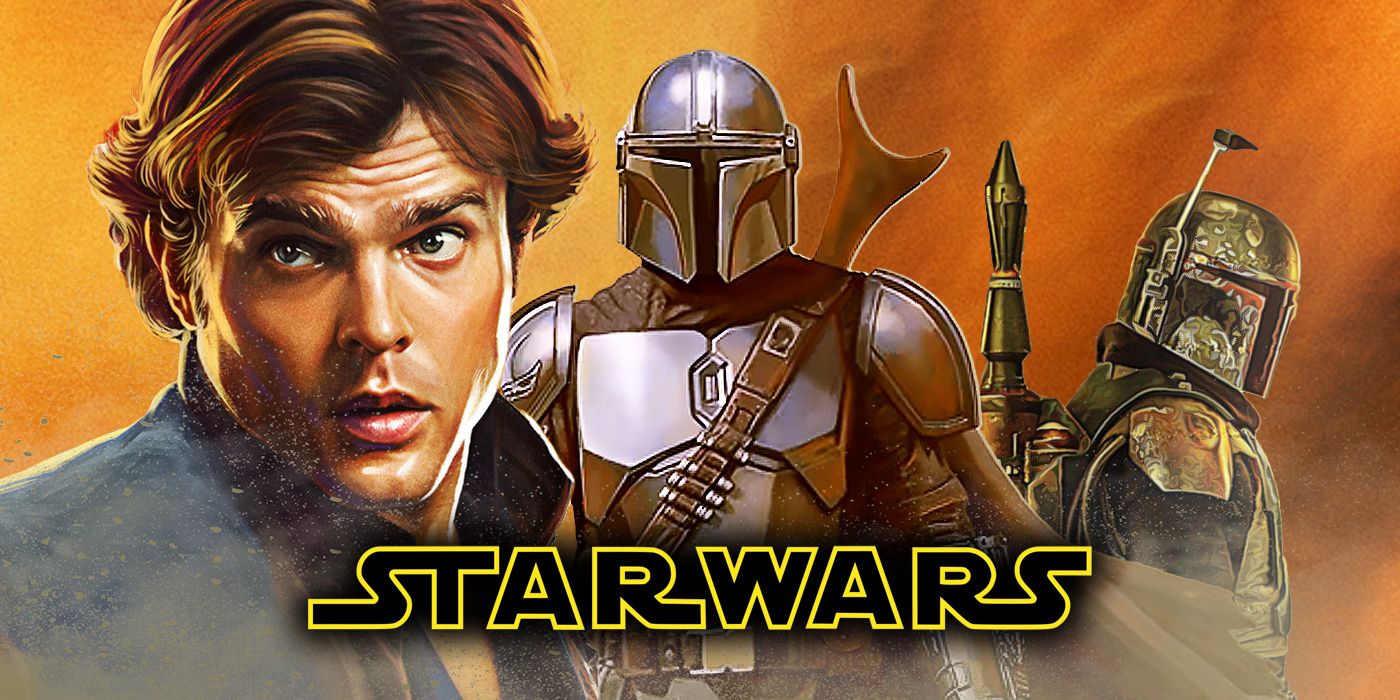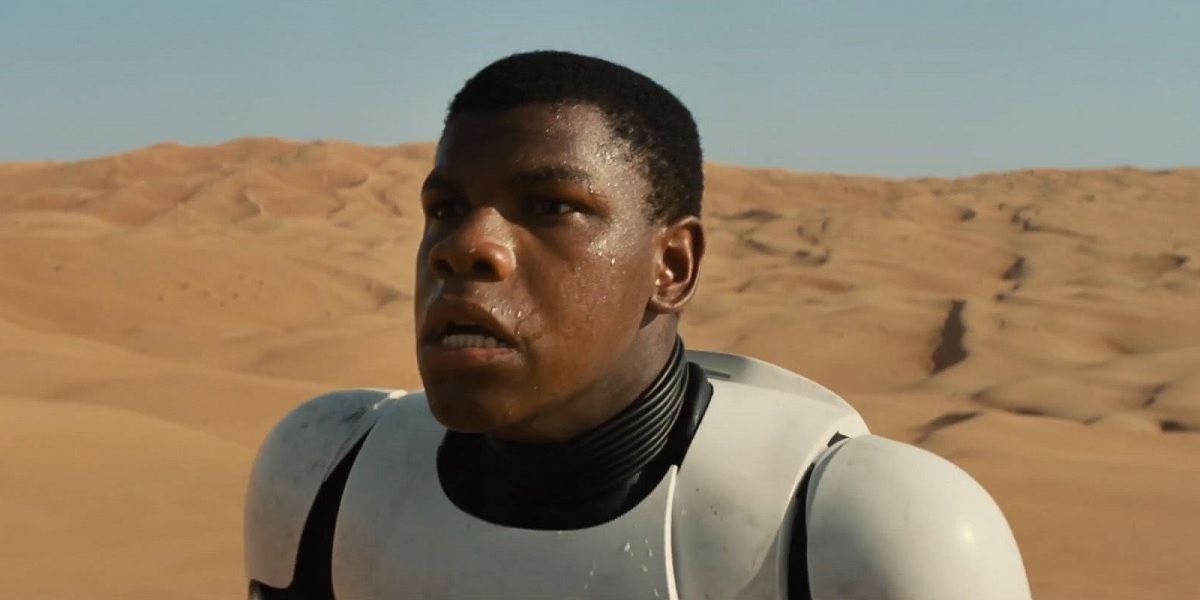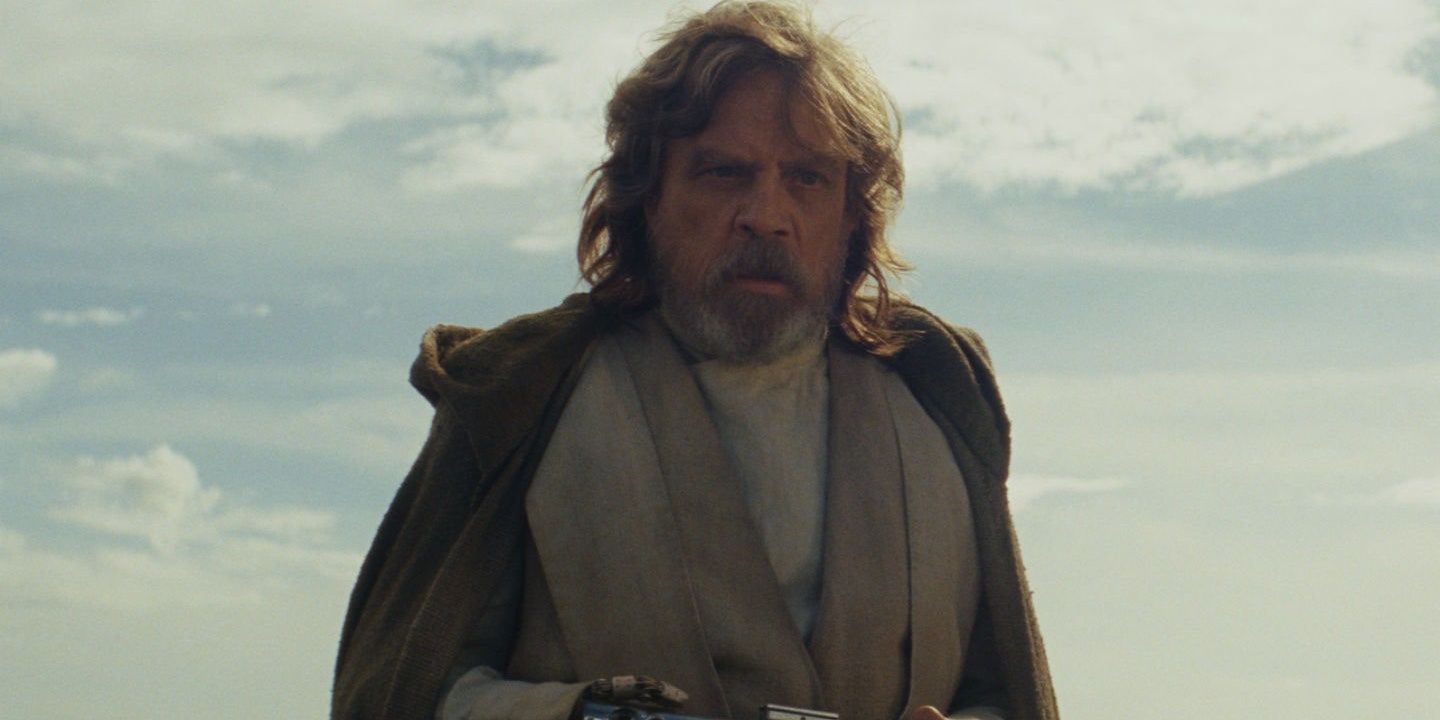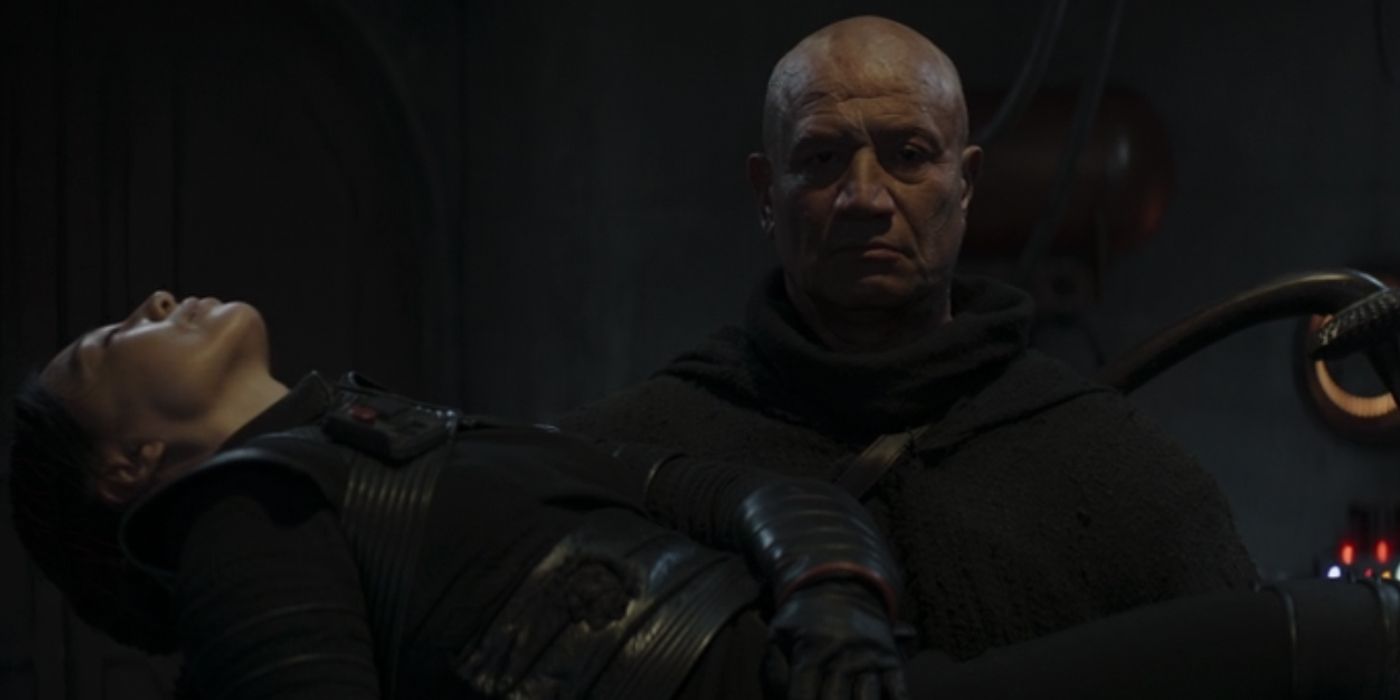Star Wars has always been spiritual, political, and philosophical, but with the new trilogy, the spin-off shows, and the character-centered prequels, the franchise has expanded on a topic only touched on in the original trilogy– free will. The trajectory of Anakin (Hayden Christensen) in the prequel trilogy The Phantom Menace, Attack of the Clones, and Revenge of the Sith seemed beyond free will. His path towards the dark side was well-documented and commented on by his mentors; he was feared, even as a child. The same can be said for Luke (Mark Hamill)–Yoda initially didn’t want to train him because he was afraid that there was too much of his father in him. In both Luke and Anakin, however, the choice seemed easy, made like they were simply flowing with destiny. There was little-to-no nuance as to who was good and who was bad, at least on the surface. When The Force Awakens came out, however, the tone shifted and the exploration of good vs evil, destiny, and choice was expanded and explored in more complex and satisfying ways.
Finn (John Boyega) opens the first film as a stormtrooper. In the original films, he would have been a faceless henchman with terrible aim, but in this film, he is a human being, complete with complicated feelings about the orders he is expected to carry out. Throughout The Force Awakens, The Last Jedi, and The Rise of Skywalker, it is revealed that Finn was enslaved by and forced to fight for the Empire, as were many others. Finn is revolutionary as a character because he becomes the first to verbalize that one doesn’t have to be a Jedi to wield the force. At first, he is laughed at for this realization, but it soon becomes a major plot point throughout this trilogy and the subsequent prequels and tv series that would follow. Audiences thought that he was going to be the main character of this trilogy, the one to carry on the Jedi torch, but he turned out to just be a regular person making the choice to do what’s right. And that’s even more powerful.
In the same set of films, the new trilogy’s answer to Anakin and Luke’s “chosen one” status came in the form of Rey (Daisy Ridley), a scrappy orphan stranded on Tatooine with a knack for hand-to-hand combat and a strong will to survive. It turns out the force flows through her in untapped potential. In a controversial twist, it is revealed that Rey is the granddaughter of the evilest entity in Empire history Emperor Palpatine and that she should have been a shoo-in for the leader of the dark side. But she wasn’t. Likewise, (and in parallel motion, because of the whole cosmic-soulmate-dad-thing) Ben Solo/Kylo Ren (Adam Driver) should have been the ultimate good guy–after all, he was from Skywalker and Solo stock. But he wasn’t. Instead, both characters have to grapple with their default settings and overcome their “destinies” in order to find their way to each other and resist the pull of power that corrupted their ancestors. As we see, with two beings of such great power, this is not an easy choice. In the end, Rey decides to surrender her great power in a symbolic gesture by burying her light saber in the sands of Tatooine, unaware that power is growing elsewhere. Maybe she doesn’t trust herself, maybe she thinks participating in the fight at all perpetuates it, maybe Luke’s cynicism rubbed off on her, maybe she just no longer feels the need to subscribe to the Jedi belief system that is starting to feel a little cult-ish. Despite spending the better part of three movies committed to the dark side, Ben Solo changes course and sacrifices his life to save Rey. This gives him a small kernel of redemption for doing a patricide on Han Solo.
Speaking of Han (Harrison Ford), he also makes a choice. There is an element of destiny here, in the sense that he does seem to know what he is getting himself into when he confronts Kylo Ren. But could it have also been a choice? Maybe it isn’t all so black and white. As Yoda once stated, in reference to prophecy, “always in motion is the future.” It happened the way it happened, and perhaps the future shifted around that choice. Han has always been one of the more complicated Star Wars characters — as a space pirate and a real grump, he feels more nuanced than Luke (even with the threat of Anakin’s fate hanging over him) or Leia, who flawlessly embodies the energy of the “good” side. Solo toes the line. The prequel film Solo chronicles Han’s (Aldan Ehrenreich) bumpy road to fighting for the rebellion. He’s not as wrapped-up in traditional ideals of “right” and “wrong” — he is kicked out of the Imperial Air Force for insubordination, and finds more satisfaction in smuggling than committing to a cause, so it’s clear that when Han steps up, it’s because he wants to, not because he has to.
A similar conclusion can be made of Luke in the new trilogy. Cynical and disenfranchised after his attempts at raising a new generation of Jedi is thwarted by his own fear, and his students are massacred by one of their peers and Luke’s own nephew Ben, he retreats to the island of Ach-To. Here he busies himself with protecting the ancient Jedi texts and caring for the land. Completely detached from what he thought his purpose was, with nothing but time to question his entire belief system, Luke becomes the kind of teacher for Rey that Yoda was for him–reluctant, cryptic, and frustrating. Socrates said, “the wise man admits that he knows nothing.” In his loss, Luke begins to truly understand the power of the force, the uncontrollable nature of others, and the futility of the fight for power over the galaxy. This is the main narrative undoing that happens throughout the sequel trilogy. It is revealed that the Republic and the Empire are fighting a war funded by people more evil and immoral than Darth Vader (James Earl Jones), Snoke (Andy Serkis) or even Palpatine (Ian McDiarmid)–people who grow richer the longer the conflict goes on, with no allegiance to either side. These films finally address the mass death and destruction this endless war has brought on. Yoda even comes to Luke in a vision to tell him to stop holding on so tightly to the dogma of the Jedi and reminds him that faith, presence, and humility are really all he needs to possess as a great teacher. He reminds him that failure is part of growth. This empowers Luke to return to the fight in hologram form, and help his loved ones escape Kylo Ren’s attack. His appearance also helps guide Ren back to the light. Then, Luke is able to fade away peacefully into death, the same as his master.
Din Djarin (Pedro Pascal) and Boba Fett (Temuera Morrison) are perhaps the most overt examples of this choice-over-destiny shift in the Star Wars narrative. The Mandalorian takes Djarin on a journey from his home as a foundling with The Mandalorians into a gun-slinging space journey as a new surrogate father to Grogu, a baby Yoda he’s indebted to care for until he can return him to his “people.” The faction of Mandalorian that raised Djarin are in hiding and live by a strict moral code, both for cultural and safety reasons. Only one of them is allowed to go above ground at a time, lest they be discovered and hunted down. They are also never to remove their helmets and show their faces in public. Throughout the series and its sister spin-off The Book of Boba Fett, Djarin finds himself at odds with the Mandalorian code. He is a person of great integrity–someone who would not break the rules just to break them. Plus, he holds the Mandalorian people in high esteem for taking him in as a child and raising him. But, over the course of his journey with Grogu, there come moments when he needs to bend the rules. These are not choices he makes lightly, but he does momentarily choose to shirk tradition in favor of completing his mission. At one point, he encounters others who don the Beskar armor of Mandalore, and is shocked at the casual way they remove their helmets–they make fun of him for being “one of those zealots.” Like many people who grow up in dogmatic cultures, this plants a seed of questioning which continues to sprout.
Boba Fett was revealed to be an unaltered clone created from Jango Fett; made as a gift to the man who donated his DNA to the Empire in order to create a clone army of perfect fighters. Jango raises Boba as his son until he is murdered by Mace Windu (Samuel L. Jackson) in Attack of the Clones. Boba Fett takes his father’s Mandalorian armor, his ship, and the training he received as a bounty hunter and sets out to exact revenge. Boba Fett becomes one of the most fearsome and respected bounty hunters in the galaxy. In the original trilogy he veers on the side of “bad guy” even if he is just doing his job. Perhaps this is what enabled the creators of both The Mandalorian and The Book of Boba Fett to tell the other side of his story. Through his story, they also explore the perspective of the Tuskgens, who first capture him, but when he earns their trust, they take him in as one of their own. Boba Fett was a one-dimensional upper-level henchman all through the original series–he didn’t seem to possess a moral compass outside capturing fugitives and getting paid. A similar thing could be said about the Tuskgens; the original trilogy cast them as villains, referred to them as “sand people,'' which definitely has some racist implications, and saw no issue with disposing of them as a means of pushing the story along. The humanization of these characters, Boba Fett’s respect for their culture, and the fact that so much of this story is told through the development of their mutual bond illustrate the "chosen family" narrative that is also present in The Mandalorian.
While Din Djarin is, at first, a reluctant father figure for Grogu, he warms to his own foundling quite quickly. Everyone else in the galaxy seems to want to capture the child because they see potential in his natural mastery over the force, but Djarin just likes him for who he is. They share a bond based on their similar backgrounds. Regardless of his growing love and attachment to the child, though, Mando comes through on his promise to deliver Grogu to his “family” the Jedi. At the end of Season 2 of The Mandalorian, Luke comes to take the child to train in the ways of the Jedi. This is not easy for Djarin, but he fulfills his duty, and he feels that this is what’s best. The Book of Boba Fett, however, shows that Grogu isn’t as excited about his training as Luke expected–he’s already formed an attachment to Djarin. So Luke, having learned enough to know how detrimental a refusal to forgo attachment can be for a Jedi, gives Grogu the choice. He chooses Din Djarin. Grogu's free will leads him to his “chosen family” over his “destiny” as a powerful wielder of the force. Who he will become is now up to him. And thanks to Finn and Rey, the audience knows there is more than one path he can take on the way to doing good. The binary has been transcended– being “good” or being “evil'' ultimately comes down to how someone chooses to behave.




